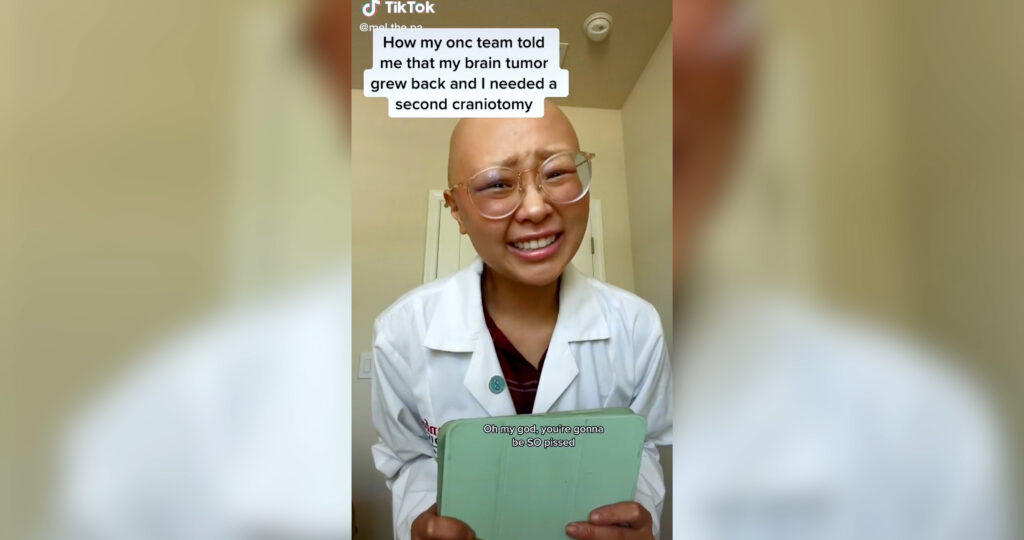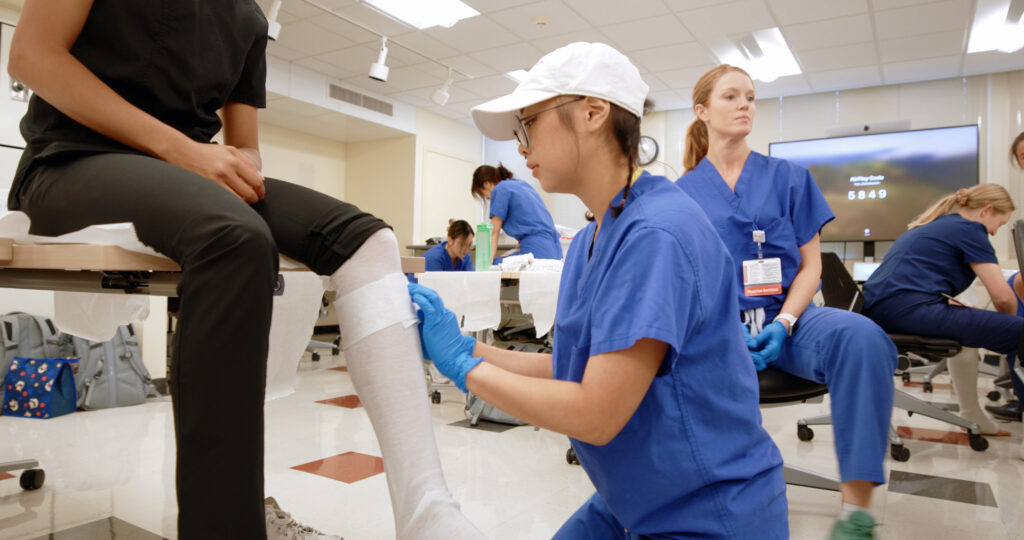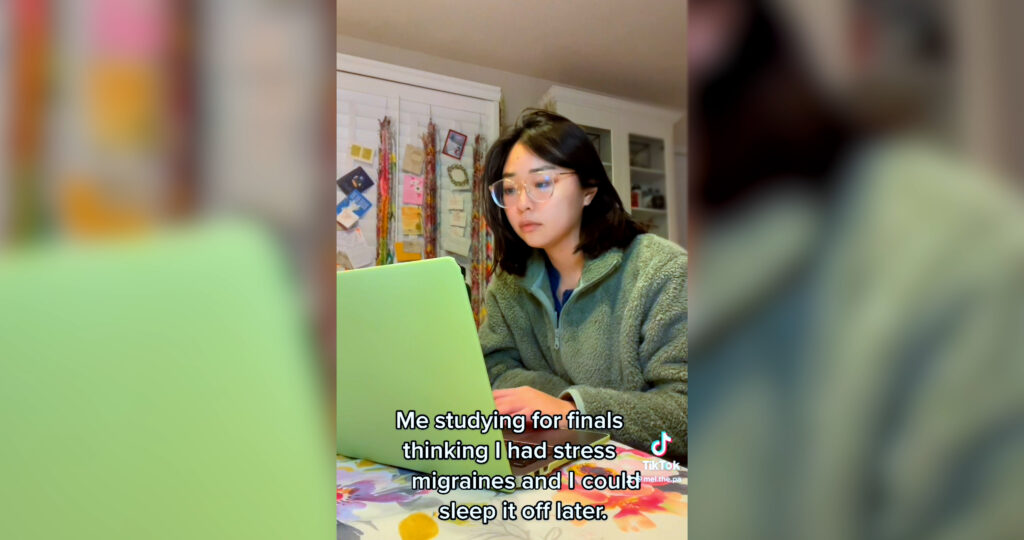In this We Are Stanford Med series, meet individuals who are shaping the future of medicine. They hail from all over the globe and come to Stanford Medicine carrying big ideas and dreams.
Melanie Shojinaga was on top of the world when she began pursuing her dreams via the Master of Science in Physician Assistant Studies Program at Stanford Medicine in the fall of 2021.
Then life took an unexpected turn.
Toward the end of her first quarter, she began experiencing intense migraines. She attributed it to the stress of finals and a lack of sleep. But over winter break the headaches worsened, and she struggled to read and write.
An MRI scan revealed that Shojinaga had a brain tumor that was exerting pressure on critical areas such as the brainstem and optic nerve. "The tumor was so big it was causing my brain to herniate out of the bottom of my skull," Shojinaga recalled. "It was compressing the left side of my brain, which is why I was having trouble speaking and reading."
She underwent treatment at Stanford Hospital, ultimately requiring two surgeries within a month due to the rapid regrowth of the tumor. Throughout chemotherapy and radiation, she received unwavering support from her family, instructors and especially her fellow students, who showered her with get-well messages and visited her in the hospital.
During her hospital stay, Shojinaga sought distraction through social media. "I had a lot of downtime, so I was creating on TikTok more," she explained of the videos that talked openly about what she was going through. "It was a good way to make light of everything that was going on and express how I was feeling at the time."

Her first few videos received millions of views, and many who watched said they were undergoing similar experiences. "It was just nice to be a support system for other people and feel supported myself," she said.
After 33 radiation sessions and five rounds of chemotherapy, Shojinaga finished treatment in July of 2022 and returned to school in January of 2023.
I kept thinking, 'That should be me in class right now,' learning about physical exams, oral history and presentations.
Melanie Shojinaga
"I had intense FOMO," she said of the fear of missing out. "I kept thinking, 'That should be me in class right now,' learning about physical exams, oral history and presentations. But in a way, it motivated me to recover faster. I was eager to return to school and not fall behind."
Now a second-year MSPA student, she is working on a thesis project on the unique needs of adolescent and young adult cancer patients, particularly regarding fertility preservation options.



Through a collaboration with Stanford Adolescent and Young Adult Cancer, a joint program between Stanford Children's Health and Stanford Health Care, she aims to create educational videos that she hopes will better equip patients to make informed decisions and engage in meaningful discussions with their health care providers about their fertility concerns.
She also learned how a strong patient-provider dynamic can provide much-needed reassurance and comfort: "I definitely understand the patient perspective now." Shojinaga said she maintains a good relationship with her cancer team and draws inspiration from them as she begins her clinical rotations. "I hope to create a trusting relationship where patients feel understood and well taken care of," she said.
Shojinaga is looking forward to graduating from the MSPA program in 2025. "At one point, I was planning my life out in three-month intervals because every three months I would have a scan," Shojinaga said of the process to monitor the disease.

That common feeling many cancer patients feel as they await those results -- commonly called "scan-xiety" -- is just part of learning to adapt to a life of uncertainty and challenges.
"It's part of the reality of being a cancer patient," she said. "Rolling with the punches, even when it's tough."
Read more We Are Stanford Med stories here; and watch the video series here.






